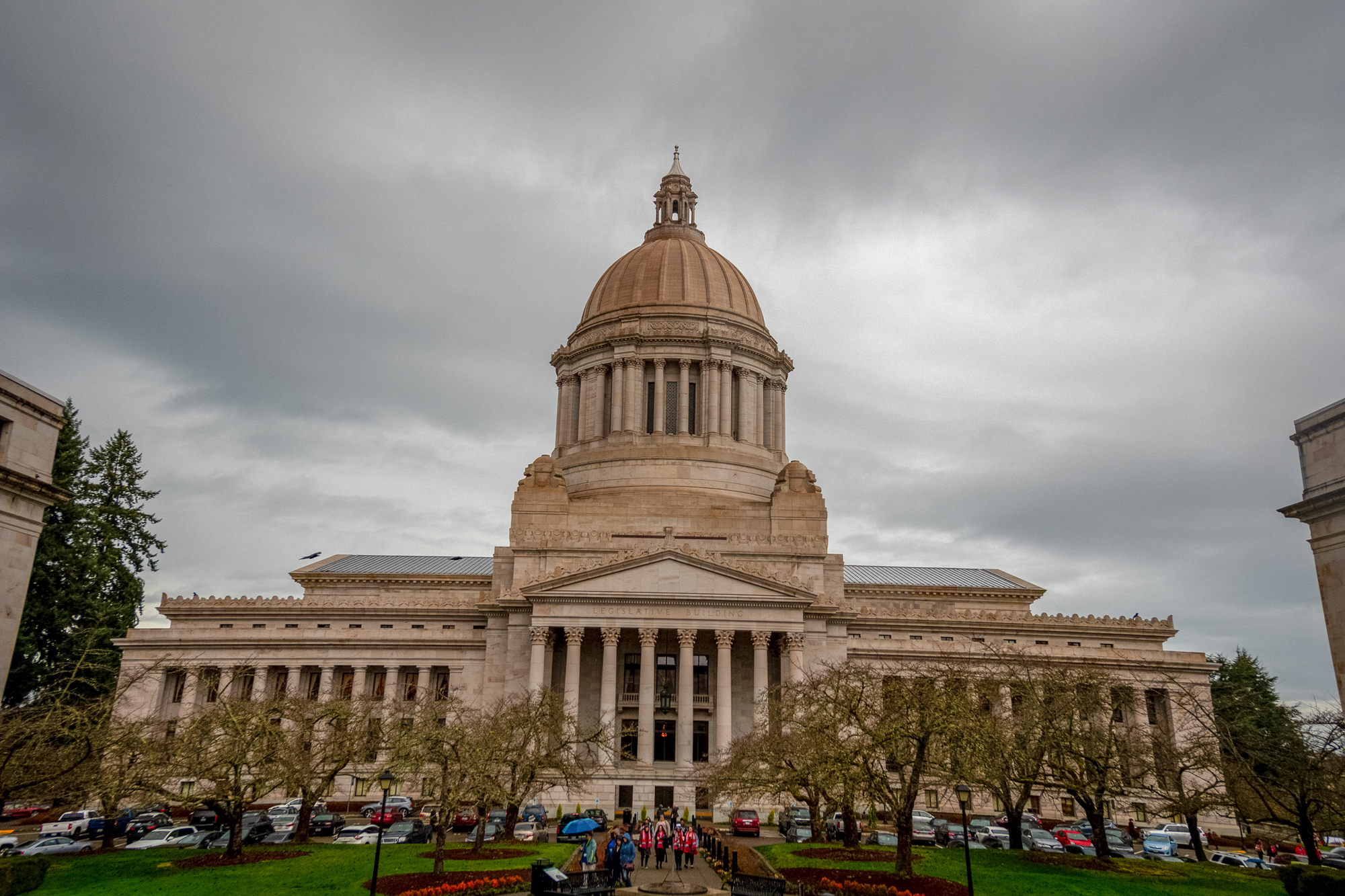The Washington State Legislative Building in Olympia on Jan. 20 2020. Thomas Meade // AS Communications Office
By Stella Harvey
On Feb. 16-17, about 100 Western students will travel to the Washington State Capitol in Olympia to speak to legislators about issues impacting marginalized students as part of Western Intersectional Lobby Day [WILD].
Board Assistant Jude Ahmed said participants don’t have to worry about transportation, food or housing for the two-day trip because, like Western Lobby Day, WILD is funded through the Legislative Action Fund. The fund is created by collecting a $1 fee with tuition every quarter and is managed by the Legislative Affairs Council.
WILD is organized in partnership between the Student Advocacy and Identity Resource Center, the Ethnic Student Center and the Environmental and Sustainability Programs. Kayl Gillihan, SAIRC outreach and representation coordinator and WILD organizer, said the event is different from Western Lobby Day because it focuses on social justice topics and issues that specifically impact students of color, LGBTQ+ students, students with disabilities and students with other marginalized identities.
Gillihan said SAIRC, the ESC and ESP each create their own agendas of issues for WILD, tailored to each office’s mission. Western Lobby Day, on the other hand, has one legislative agenda that is created through the Legislative Affairs Council. The three offices also collaborate on a general legislative agenda with broader issues that impact students and people across organizations. The general legislative agenda covers support for undocumented students, funding for ethnic studies, protections for farmworkers and support for survivors of sexual assault.
The ESC agenda focuses on rights for incarcerated people and support for Native American students. The SAIRC agenda includes mental health and wellness, public accessibility and reproductive justice. The ESP agenda currently covers banning plastic bags and creating a low carbon fuel standard.
Ahmed helped organize Western Lobby Day, and returned to help organize the logistics of getting students to Olympia for WILD.
“It’s really cool to see all the different types of people who come out and get to showcase their experiences as students in a way that gets legislators’ attention,” Ahmed said.
According to Gillihan, anyone can participate in WILD, even if they’ve never lobbied or met with a representative before. Before the trip, as well as the day before students meet with legislators, organizers give participants a comprehensive training on how to lobby. Together, the group goes over the legislative agendas, and organizers show students how to research their representatives and select topics to prepare for each 15-minute meeting.
Gillihan said last year when she attended WILD, it was her first time lobbying, and it was a great learning experience.
“It can be a safe space to be like, ‘I don’t really know what I’m talking about, but I’m excited and I know that I have lived experiences that deserve to be shared and recognized,’” Gillihan said.
The Legislative Affairs Council and Associated Students Executive Board approved all four agendas on Feb. 7, pending possible changes to the ESP’s agenda. During the regular board meeting, Grace Drechsel, VP for governmental affairs, suggested the ESP organizers could add two agenda items from Western Lobby Day pertaining to environmental protection, to further develop their agenda. Gillihan and Drechseld agreed they would follow up with the ESP organizers.
Gillihan said this year, she wants WILD to be accessible to anyone who wants to participate.
“I just love seeing people feeling politically engaged,” Gillihan said. “I just want people to feel like what they’re saying matters and that their presence there is having an impact.”
For more information on Western Intersectional Lobby Day, click here.

